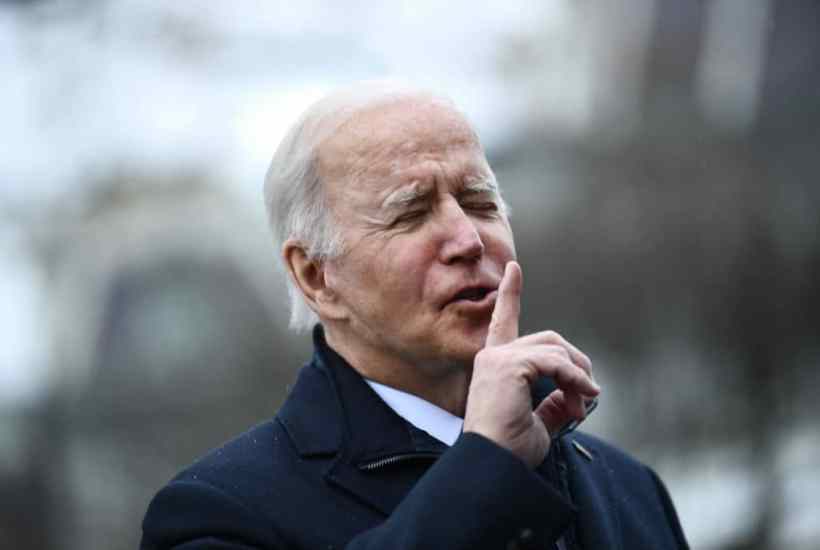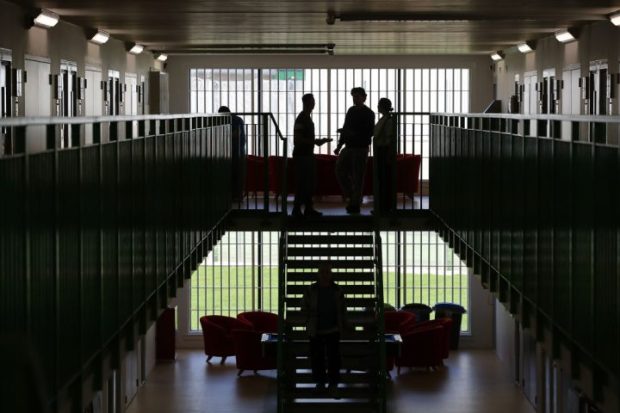Forget the ‘commitment‘ of the US Secretary of State Antony Blinken to Ukraine’s sovereignty, the EU’s ‘firm and decisive’ support, and Liz Truss’s vow to ‘stand firm‘ with Ukraine. The hard truth is that the West has already lost, or rather abandoned, Ukraine.
Even if it is not overrun by Russian tanks this winter, the Kremlin has a free hand to destabilise, threaten, and undercut Ukraine – including by intensifying the conflict in Ukraine’s east. After all, that war, initiated by Vladimir Putin, has been ongoing since 2014. And for all the tough rhetoric, countless sanctions, and the two bargains struck in Minsk, Russia continues to occupy Crimea and treat Donbas as its own territory.
If Russia were indeed to intensify the conflict, what exactly is the West going to do? Slap more sanctions on the regime in the hope that it changes its behaviour? An oil and gas embargo? Good luck with that, considering the current energy prices.
Or perhaps, the ‘nuclear option’ of cutting Russia off SWIFT, the global financial settlement system? The negative shock would surely harm Russian financial institutions and businesses. It is doubtful, to say the least, that it would force the Kremlin to reconsider. After all, being off SWIFT has not noticeably altered the behaviour of Iran or North Korea’s leaders.
Boosting military aid to Ukraine might help – but it should have come a long time ago. The country has received $2.5bn (£2bn) in military assistance from the United States since 2014 – equivalent to what Egypt gets in less than two years. However, it takes time, effort, and good governance to translate a hypothetical boost in lethal aid into an effective deterrent against Russian aggression. By the time new money would make a difference, the Kremlin could force a new geopolitical reality on the ground or undermine the Ukrainian government to an extent that would make the political case for further military assistance from the West untenable.
In fact, it is difficult to identify policies that could materially change Putin’s calculus – other than committing Nato troops to the defence of Ukraine. Sure, if it chose to, the West could also play dirty, just as Russia has. Instead of officially stationing forces in Ukraine, perhaps Ukraine could become a ‘holiday destination’ for Nato soldiers in unmarked uniforms, together with their equipment.
But unless the United States and its allies are ready to go down one of those paths – which can easily result in a shooting war involving Nato and Russia – there will be a mismatch between the rhetorical flourishes and displays of commitment to Ukraine’s future and the West’s actions. That mismatch is going to be exploited by Putin. In other words, no matter how uncouth it may be, unless the West is willing to put up an actual fight over Ukraine, the country’s Western and European future is a lost cause.
It is, after all, much the same way that the West has lost in Afghanistan, Syria, or Libya – all places where our adversaries made the (correct) calculation that the United States and its allies either did not want to get involved or lacked the political stamina to persist in their efforts. Similarly, the West has lost in Georgia and in parts of the Western Balkans, where the West did not follow up its talk of future integration with action.
Now, there might be good reasons for not getting involved in conflicts in faraway places and for not making open-ended political and security commitments to countries that are only tangentially related to our own security interests. Yet one should be clearheaded about the fact that staying out means ceding influence to other, potentially malevolent actors. As a result, the Biden administration and the broader transatlantic community cannot have it both ways – pretending to be the bedrock of the world’s ‘liberal’, or ‘rules-based’, order and not making any of the hard choices and sacrifices needed to turn that notion into something more than just an empty slogan.
Ultimately, the mindset that appears to animate foreign policy choices in Western capitals makes it harder, not easier, to confront the new strategic priority that has eclipsed in importance both Russia and the Middle East: China. After all, containing Chinese expansionism requires the resolve to incur costs and casualties and to make good on promises to allies, whether they are in the Indo-Pacific or elsewhere. The question remains: is the West up to the job?
Got something to add? Join the discussion and comment below.
Get 10 issues for just $10
Subscribe to The Spectator Australia today for the next 10 magazine issues, plus full online access, for just $10.



















Comments
Don't miss out
Join the conversation with other Spectator Australia readers. Subscribe to leave a comment.
SUBSCRIBEAlready a subscriber? Log in